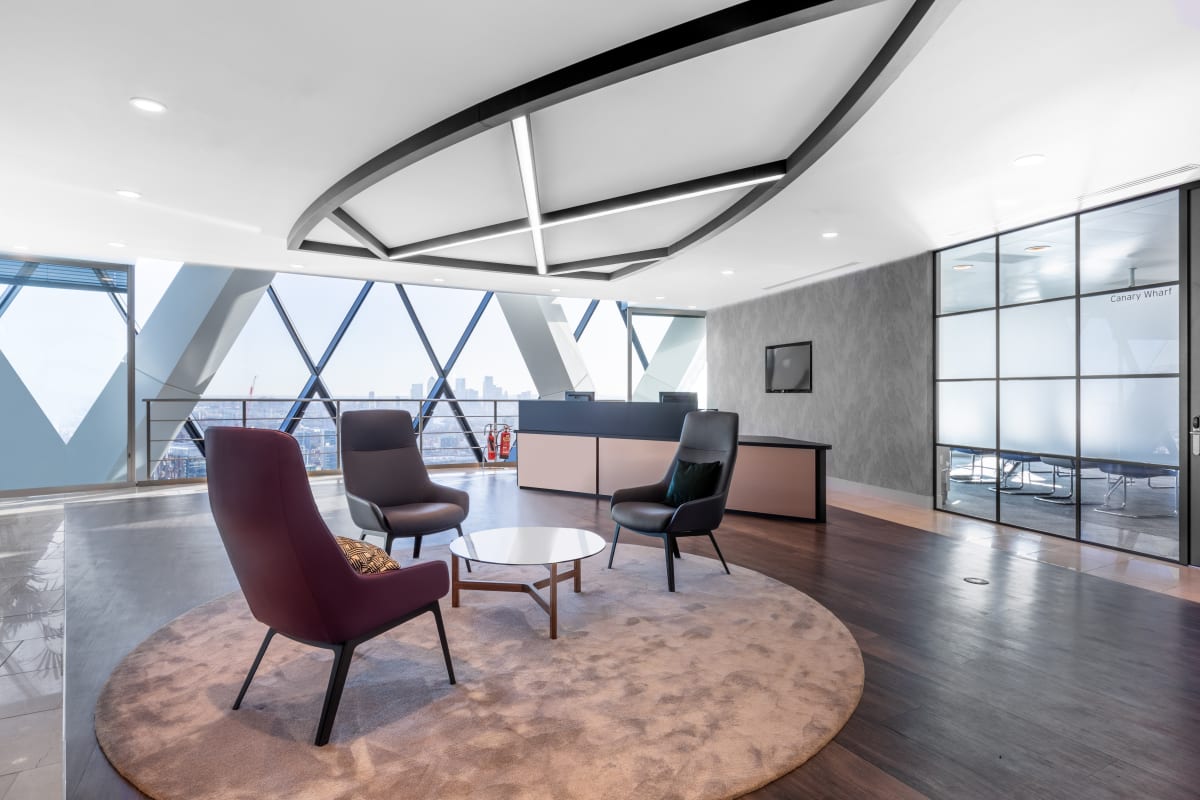Article updated in August 2020.
In the current climate, a long-term lease might not seem a wise investment, but the long-term lease is evolving through Flexspace to ensure companies are still able to adapt quickly as circumstances change.
When it comes to the long-term lease – and especially when it’s large-scale portfolio management we’re talking about – there was traditionally only one way to go. You had to sign a fixed contract that stipulated what was and wasn’t included, and there wasn’t much room for discussion should requirements change – at least, not without the hassle of considerable paperwork. To make matters even more inflexible, leases of five or 10 years meant that once you’d signed something, it was very hard to get out of it without paying a penalty. But today’s world is more mobile and business is adapting to reflect that – even big business.
Take Oracle, for example. As one of the world’s most famous large corporations, you would think that a flexible workspace (flexspace) with a flexible lease might not be what’s needed when you’re a multinational software concern. But far from it: according to Thierry Leservot, who handles the company’s property management in France, using a flexspace provider like IWG brand Regus affords all of the benefits of a big, established name and the attitude of something nimbler: “We chose Regus because the brand has centres all over France,” he says. With 60 employees spread throughout Nantes, Rennes, Strasbourg, Grenoble, Lyon and Sophia-Antipolis, all working in a Regus Business Centre, Oracle is able to maintain an established presence countrywide that can nevertheless be scaled up or down as demand dictates.
The strategy has been applied internationally too. “Regus has coworking spaces abroad, allowing us to negotiate globally and not by country,” Leservot says. It’s the best of both worlds: as well as fixed workstations for those in full-time positions or who require a “traditional” office, business lounge-style solutions provide the perfect drop-in centres for travelling sales teams and part-timers – and some membership options even allow employees to work wherever they find a Regus business centre around the world.
As much of Oracle’s work is project-based, it can be hard to know what’s needed beyond a six-month timeframe – another reason why flexspace works so well. “Flexible workspaces serve a dual purpose, in that they increase flexibility at the same time as cutting costs,” Leservot says. “The conventional 3/6/9 leases no longer meet our expectations, whereas Regus makes it possible to adapt to the changing needs of teams.” And it’s not just the length of a lease that works when it comes to flexibility but the actual physical layout of the office too. “We have the option to choose closed offices or open-plan, depending on what the local team requires. In Montbonnot, for example, we opted for closed because the developers there manage calls all day long,” he adds.
For the French utility provider Engie, the shift to startup business culture and the coworking mindset has meant a sea-change in the way day-to-day operations are run. Looking for a rental property to house the company’s digital department – essentially a small to medium-sized enterprise operating under its own flag – in the end it was flexspace that made the most sense. “We chose the Regus Paris Saint-Lazare centre, on rue de Londres, not only for its ideal geographical location but also because Regus offers the possibility of modulating spaces according to our needs,” recalls Deputy Real Estate Director Philippe Ernandes. “We were also seduced by the ‘at home’ spirit of the centre,” he adds.
It wasn’t just the company’s old guard who were seduced: new recruits were too. As a new department, the digital entity was tasked with finding fresh talent from previously untapped sources – and being located in the centre of the Paris startup cluster, surrounded by likeminded individuals in a buzzing coworking space, helped to do just that. “We wanted to be disruptive and free ourselves from traditional office codes. Being independent and away from head office has allowed us autonomy,” Ernandes says. And it all happened in a timely fashion, too: “The installation was done in less than three months – a record!”
Since then, Engie’s digital department has expanded at a rapid pace with a workforce that’s grown fivefold since launch. The unpredictable nature of the department’s needs was another reason to choose flexspace. “We need real-estate flexibility,” Ernandes asserts. “Our workforce is evolving quickly and it’s difficult to anticipate. We therefore have a need for elasticity in our premises.” The elasticity he’s talking about would simply be impossible without utilising flexspace: “The space in Saint-Lazare that we invested in in 2016 originally had fewer than 50 people, and today there are 250.”
With an ever-changing roster of needs – from desk space and meeting rooms to a fluctuating and mobile workforce – property management can be a tricky business. But as these successful businesses show, taking a flexible approach can work wonders.
Read more about the workplace revolution – and how IWG can help.






